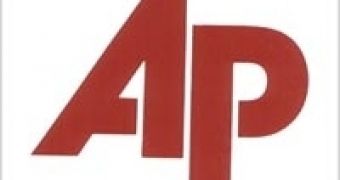To say that the newspaper business has seen better days is an understatement. With readership and advertising money dropping significantly over the years many publications are going bust while others struggle to stay afloat. So it's understandable if bigwigs in charge aren't happy and it's also somewhat understandable when they blame the Internet for their problems. What is less understandable is the measures some are taking to 'protect' their business and none is more outspoken and determined than The Associated Press, which has announced it is launching a new system that will automatically notify it when someone is using its articles.
And by “using its articles” it means even linking to them. You're reading this right, the AP has a problem with other parties, like news aggregators and even search engines linking to its content and using its headlines. Google, Yahoo, Bing, every search engine typically lists the title of an article, the link to that article and a small excerpt in their search results. Tom Curley, president and CEO of the AP, believes, as the New York Time reports, that even this should require a licensing agreement between the two parties.
The system it is proposing will create a news registry that will add a digital “wrapper” around each article, and, in the future, to photos and videos too, which will allow the AP to track how its stories are used and spread online. The articles will also carry metadata containing usage rights and other related information. The system will be introduced in November and Curley believes that it should be adopted by all of the 1,400 publications that jointly own the news agency.
"What we are building here is a way for good journalism to survive and thrive," Dean Singleton, chairman of the AP Board of Directors and vice chairman and CEO of MediaNews Group Inc, said. "The AP news registry will allow our industry to protect its content online, and will assure that we can continue to provide original, independent and authoritative journalism at a time when the world needs it more than ever."
While the AP has every right to protect its interests and properties in any way it sees fit, it's clear that the news agency, along with a big part of the traditional news outlets, doesn't understand how the Internet works, how most companies, especially media ones, make money online, where the revenue comes from and who earns it. By blocking links, especially from search engines, any online content is effectively cutting its own air supply. Depriving yourself of the traffic the search engines, not to mention blogs and other outlets, generate means depriving yourself of potentially millions of visitors, which could mean millions in revenue with a proper model set up.
The AP has been fighting blogs and online publications for years – sometimes rightfully so, when small sites or blogs would use large portions or, on occasion, even the entire article without permission, sometimes stretching the limits of the law when other publications would use small passages and link to the original content believing to be in the confines of the “fair use” principle of copyright law. But this has gone from peculiar to ridiculous and now to sad, really. Blindingly refusing to see that the world is changing, that current revenue models do not work anymore and, rather than embracing the new possibilities, fighting them with all your strength is something many industries have done in the past. And none of them are here today.

 14 DAY TRIAL //
14 DAY TRIAL //